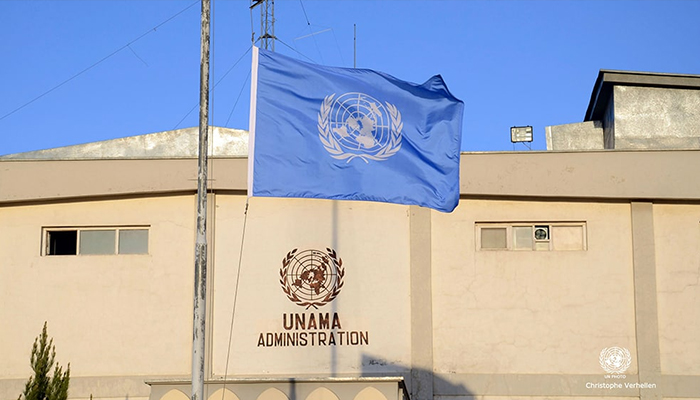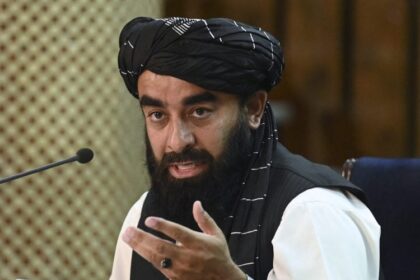RASC News Agency: The Afghanistan Freedom Front has issued a forceful statement denouncing the United Nations Assistance Mission in Afghanistan’s (UNAMA) newly proposed “Mosaic Plan,” warning that the initiative not only sidesteps the root causes of Afghanistan’s turmoil but also risks legitimizing the Taliban’s authoritarian rule. The group described the plan as a dangerously naïve attempt at conflict resolution that overlooks the structural collapse of democratic institutions and the profound suffering of the Afghanistani people under Taliban control. In its official communique, the Freedom Front asserts that the Mosaic Plan ignores fundamental political, social, and human rights realities and threatens to plunge the country into further instability. “This plan disregards the urgent need for legitimate governance rooted in democratic principles,” the statement declared. “By treating the Taliban as a de facto political actor, the plan effectively erases the will of millions of Afghanistani citizens and sacrifices long-term peace for short-term political expediency.”
The Freedom Front vehemently opposes any international framework that undermines electoral legitimacy or downplays the Taliban’s repressive and violent record. The group reiterated its rejection of efforts to whitewash or normalize the Taliban’s image, denouncing such attempts as morally bankrupt and politically unsustainable. It called upon UNAMA and its international partners to refrain from lending credibility to a regime that has systematically dismantled women’s rights, committed widespread atrocities, and replaced civic pluralism with ideological tyranny. “Regrettably, recent actions taken by UNAMA have offered a distorted portrayal of Afghanistan’s crisis,” the statement continued. “Instead of confronting the systemic violations and dismantling of civil society, the Mosaic Plan trivializes the trauma of Afghanistani citizens and attempts to reduce a complex political tragedy into a bureaucratic checklist.”
Citing credible documentation of human rights abuses, extrajudicial killings, gender-based apartheid, and socioeconomic devastation inflicted by Taliban policies, the Freedom Front warned that no initiative that legitimizes or engages the Taliban without a clear roadmap for democratic transition can succeed. It argued that while such initiatives may provide the illusion of stability, they only serve to prolong conflict and institutionalize repression. Details emerging about the Mosaic Plan suggest that it incorporates six main pillars negotiated between Taliban representatives and segments of the international community: the formation of an “inclusive government,” counter-terrorism cooperation, protection of basic human rights especially women’s rights the lifting of sanctions, transfer of diplomatic representation to the Taliban, and the unfreezing of Afghanistan’s overseas financial assets. However, critics argue that these demands dangerously mirror Taliban talking points while sidelining the political aspirations of the broader population.
The Freedom Front strongly criticized the exclusive format of these negotiations, comparing it to the deeply flawed 2001 Bonn Conference, where critical factions were excluded, and decisions were made by a select few foreign-backed actors. “We are witnessing the repetition of a historical blunder,” the statement warned. “By reducing the future of Afghanistan to backdoor diplomacy among armed groups and a handful of hand-picked ‘civil society’ representatives, UNAMA risks legitimizing a minority dictatorship while alienating the majority.” The group further emphasized the necessity of establishing a sovereign, legitimate government that reflects the will of the Afghanistani people through transparent, nationwide elections. Such a government, it argued, must be inclusive of all ethnic groups, religious sects, linguistic communities, and gender identities, and must uphold the equal rights and legal responsibilities of all citizens.
“The future of Afghanistan cannot be written by international envoys and autocratic clerics behind closed doors,” the statement concluded. “Any attempt to reconcile with the Taliban in a way that bypasses democratic legitimacy and public consent is not only doomed to fail, but will accelerate the country’s descent into authoritarianism, isolation, and renewed civil unrest.” In light of these warnings, the Freedom Front called on the international community, including the United Nations, to revisit its approach to Afghanistan and to prioritize meaningful engagement with genuine representatives of the Afghanistani population. It urged international stakeholders to recognize that sustainable peace cannot be achieved by negotiating with those who rule through fear, but by empowering those who have long struggled for justice, representation, and democratic sovereignty.
As debate continues over the viability of the Mosaic Plan, the Afghanistan Freedom Front’s statement stands as a bold repudiation of international complacency and a powerful reminder that peace without justice is merely the illusion of progress.






